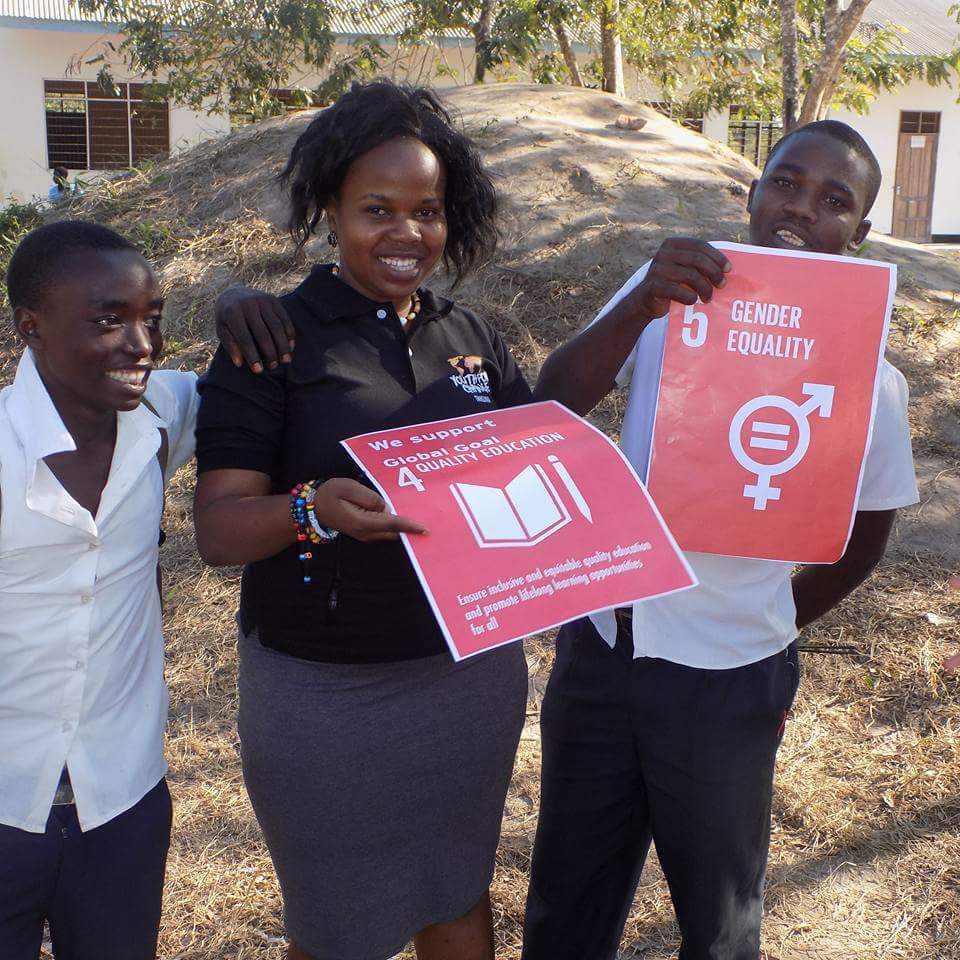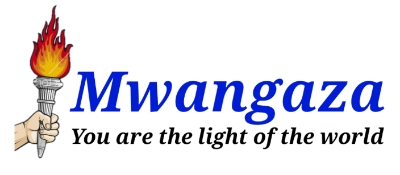Kindly please tell us more about yourself
My name is Catherine Kapilima. I am a Sustainable Development Goals Ambassador/volunteer. Currently, I am a foreign student at Osmania University, Hyderabad, India and is 20 years old.
I have volunteer experience worth 6 years in which I have worked with International Organisations such as the United Nations Tanzania, as a champion for Global goals, Plan International Tanzania as a Volunteer at a Global campaign Youth for Change. I also became the Acting country director for Plan International 2016. Other organizations include scouts,Tayen, Roots and Shoots. I choose to step up with the following Global Goals; Quality education and Gender equality.
Just like any other young girl, I had a dream which sharing with my parents was difficult but luckily, they understood and became part of building the dream. That is by helping me balance my time and giving me permission to attend conferences and outreaches that were organized out of school. Being part of the Suistainable Development Goals program has helped me to gain skills and raise awareness about Suistainable development goals and the future we want.
So volunteering does take one a long way?
Yes it does. I started in primary school during Scouts activities and by joining clubs which grew passion in volunteer activities.
How did you manage to become part of SDGs as an ambassador?
I attended a conference organized by Youth of United Nations Association ( YUNA) whereby Iwas selected among the 60 champions who were trained and awarded certificates to become Global Goals champions.
I am inspired by your achievements. I like volunteering but is always pulled back by the fact that I cannot support myself financially.. Is that also a challenge to you?
Really financial matters can be scary but beliee in doing things. If I want change then I try to become the change too. At first, it was hard for me to attend conferences because financially, I was not stable. I was young and depended on my parents but that did not stop me. I tried and never stopped trying. I opened a lot of UN clubs in my country with the help of United Nations Tanzania who in one way or another support youth and youth organizations.
What challenges do you encounter as a youth in your work?
Geographical location of the areas that are affected most especially on gender equality issues. Language is also another problem that we encounter as in most of the areas, the youths /people are not able to address their problems in the national language meaning they speak mother tongue. It becomes difficult to raise awareness, solution making and even implementation.

What do you see yourself in 10 years and how do you plan to walk the journey?
Well I see myself as a role model to many young girls. I grew up listening to people who said “I cant do this…you cant do this… this is too much for you”. They always have their own opinion. I stood up to say I CAN. My vision is to see a world where women are free from all forms of violence. A world where girls walk to school and have access to quality education. That is why I choose to volunteer at different organizations to address gender issues and education.
Among the 17 Sustainable Goals, I choose to work with Goal no. 04 QUALITY EDUCATION and 05 GENDER EQUALITY.
What drives you to do what you do?
Self motivation, discipline and willingness to learn.
How many countries have you been able to reach out, and can you please share the experiences and your expectations?
2 countries. Tanzania and India. My expectation is to travel more especially this year.

Many African states and more so developing countries have not uprooted the issue of gender discrimination, what is the best way on how they can deal with it?
Besides the 2030 Agenda, African countries have commited to implement the African Union Agenda 2063, with a vision and plan for girls, increasing the representation of women in national parliaments and reducing child and maternal deaths and the proportion of people infected with HIV.
The best way is to involve both women and men to solve gender discrimination issues. In other countries, this problem does not exist. In most developing countries, this is due to the historic backgrounds, cultures and tradition.
Many education systems across African states are not issue based, what is your take on this?
I know that we have inspectors for education in our countries but am not quite sure if they are able to achieve the primary goals of quality education in most of African countries. I preffer we move to Quality education where everyone is involved.
What of the boy child? Where does he fit in this 2030 vision? By focusing on the girl child, are we disadvantaging the boy child?
Education is very important for every child whether a boy or girl. It is sad that some communities still discriminate against the education of the girl child. About 57 million children arround the world are not going to school. Most of them are girls. In my country i can say girls have little access to education.
What are the frameworks on ground to ensure that the SDG achieves it objective as we know that MDG did not achieve all her targets before changing to SDG. How do we measure its progress.?
A good frame work is ensuring that no one is left behind as per the SDGs motto. This clearly incorporates society groups that were not given a voice prior or whose voices were partially undermined. That is why for the SDGs the involvement of youth and women is so important.
I believe women empowerment is a pre- condition for the attainment of goal number 5, what are the dimensions and structures to be put in place to achieve this?
To achieve gender equality and women empowerment, UN member states have adhered to incorporate the 50/50 agendas in their local , continent or regional policies. This includes involvement of women in decisions making bodies such as government, allowing women to form business unions , abolishing diminishing cultural practices such as female genital mutilation and the notion that girl children are worthless etc.
Empowerment of women is achievable if we all do our part as most sustainable communities have been nurtured by great women. And they say when you empower a woman you empower the society.










